It is too common to hear, ‘Local communities do not have the skills to manage conservation areas.’ This might be somewhat true, but shouldn’t we question why this is still the situation and what’s being done to change it? Local community members are perfectly competent, and we should focus our investments here, beyond the traditional conservation fields and in areas that are core to business sustainability.
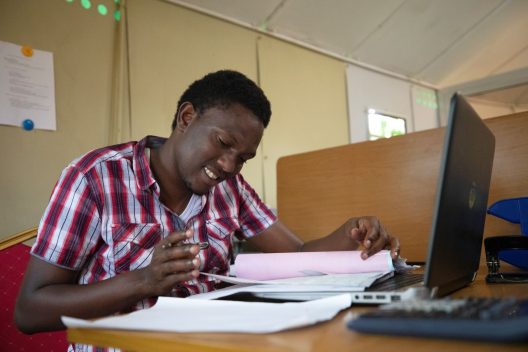
Tobico happy at his desk, getting through his paperwork for the day.
Take, for example, Tobico Ngimelil, who completed his Bachelor of Commerce in Finance from the University of Dodoma in 2016 and is now doing his Masters in Accounting and Finance while still being responsible for recording two million dollars of annual accounts for Honeyguide. Tobico did not grow up in a city with a TV, a phone, electricity, and a play station; he grew up in a rural Maasai boma in Loiborsoit ‘A’ Village in Simanjiro in northern Tanzania. He, like many others, would have herded goats and cattle out in the rangelands as a youngster and would have had to walk over an hour to primary school daily, watching out for elephants and other potentially hazardous wildlife on his way. He clearly has the skills and is from a rural community.
For most rural people in Tanzania, getting an education was not an easy task; many schools twenty years ago did not have electricity or running water; their kids would often have to walk hours to reach school and might have gone without a meal during the day; however it did not stop rural people in Tanzania investing in education, it energised them. They realised that this was their chance at a future.
Samwel Saruni was brought up in a similar rural Maasai household in Lokisale village; he completed his Master’s in Finance and Investment in 2020 and now manages the four hundred thousand dollar business of the community-owned Randilen Wildlife Management Area (WMA). Like many other members of rural communities in Tanzania, Tobico and Samwel’s parents and community invested in education. What they need now is for others to recognise and value this investment and build on it. If we want to see conservation working, this is where we need to invest our conservation efforts, supporting local communities to manage their conservation areas for their people and the wildlife and natural resources that are part of their heritage and their future.
Providing people like Samwel with the structure, systems, tools and investments is required for these conservation businesses to thrive. Honeyguide steps in here, helping to build the capacity of the governance and management organs of these WMAs’ while respecting how much they have already invested.
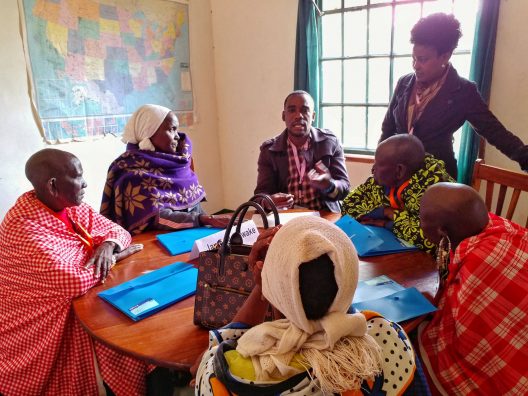
Namnyaki (standing) training community members from Makame WMA
Our Finance and Administration Trainer, Namanyaki Mattasia has over 20 years of experience in finance, has a CPA and has the sincerity and focus on helping people like Samwel reach their career goals. Namnyaki trains and coaches the WMA teams and provide them with templates to help them develop budgets, cash flow tools, policies, QuickBooks packages, and an array of other financial tools that are all a part of our ma&t framework. Namnyaki helps people like Samwel manage their WMA area as professionals with accurate and comprehensive accounts of their financial transactions. When the financials of a community owned and run conservation area are managed to a professional, international standard, they will have the confidence and dignity to share them with their governing body, their development partners, and their investors. To be transparent. These are the essential skills, together with confidence, needed by large areas under community management in the conservation world of today if we are to meet the 30:30 targets. Similarly, commercial or philanthropic investors will be attracted to any area with robust and transparent financial systems in place, as this de-risks their investment.
When you understand what transformations have been taking place over the past decades within local communities, it is surprising to read in a recent publication by Maliasili that indigenous people and local community (ILPC) organisations receive less than 1% of all climate funding and that African organisations receive only 5% to 10% of private philanthropic funding invested in the continent. The report recognises that major changes to funding practices must happen to get significantly more funding to the point of impact.
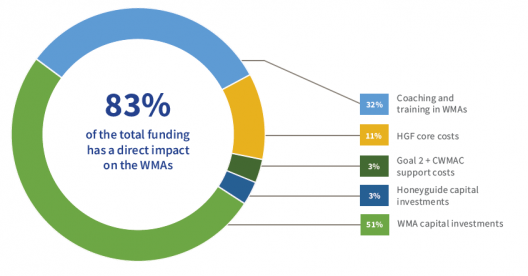 83% of the 10 million dollars Honeyguide will raise over the next five years for our strategic goals will reach this point of impact, the WMAs with over $5.2 million directed as capital investments in these WMAs and $3.3 million to support experts like Namnyaki to provide the tools, coaching and training.
83% of the 10 million dollars Honeyguide will raise over the next five years for our strategic goals will reach this point of impact, the WMAs with over $5.2 million directed as capital investments in these WMAs and $3.3 million to support experts like Namnyaki to provide the tools, coaching and training.
The nature of conservation organisations and their approaches need to be different. Funding needs to go to the point of impact, to the people on the ground. Why wait, the communities are ready, so believe in them, make the change and invest now.

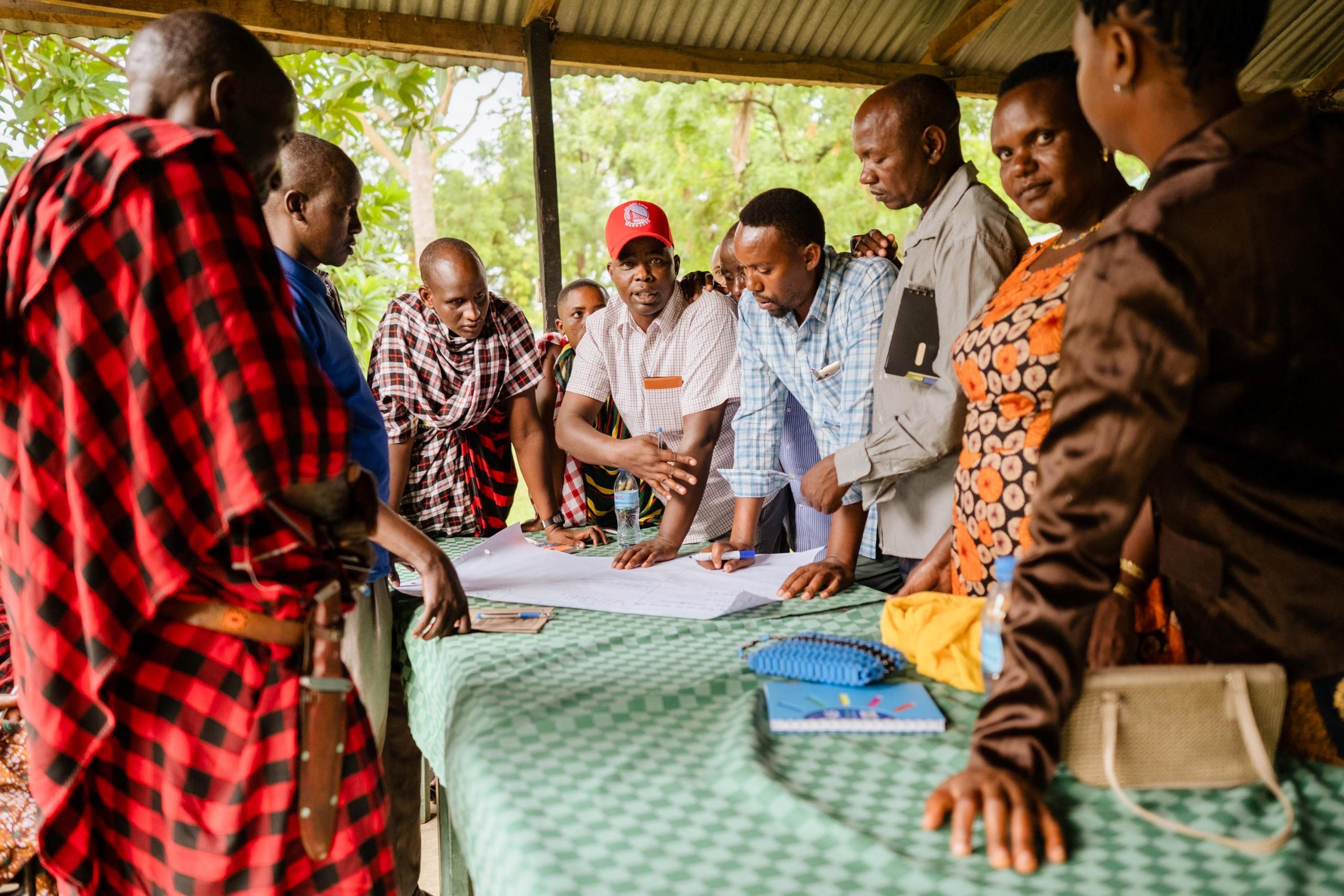
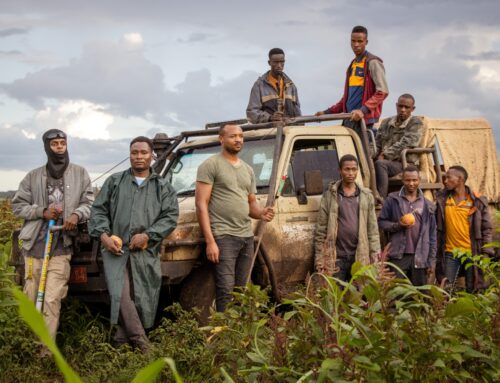
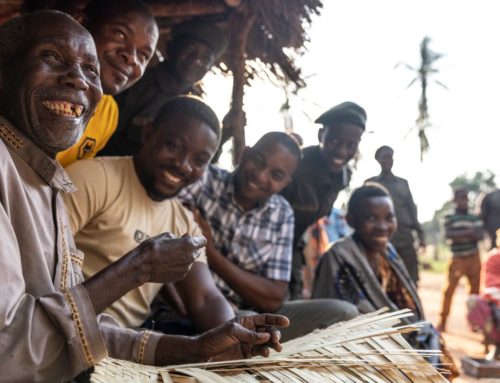
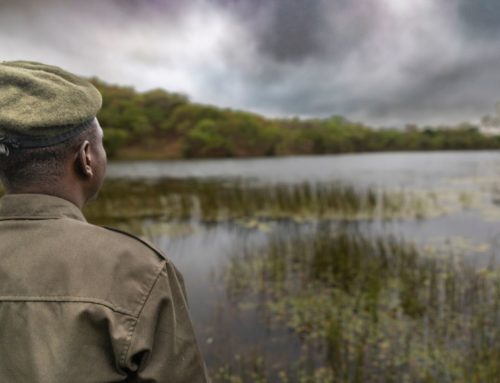
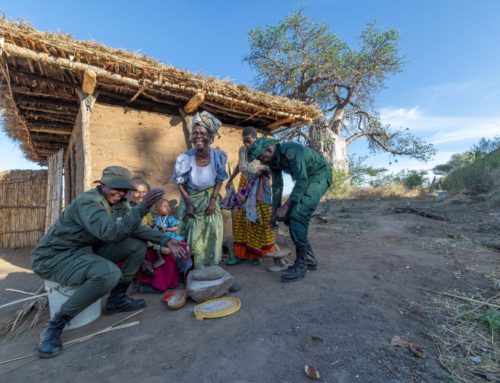
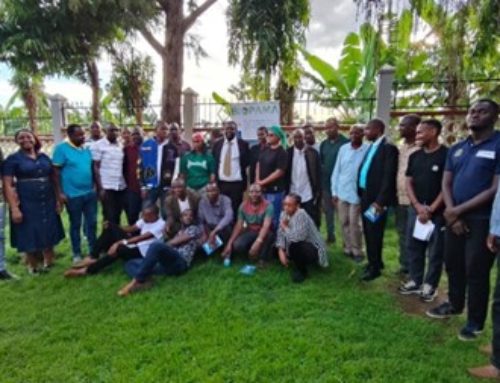
Leave A Comment